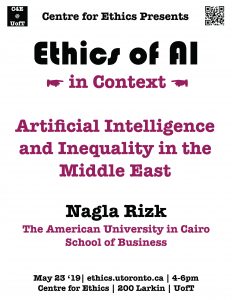
Artificial Intelligence and Inequality in the Middle East: The Political Economy of Inclusion
This paper explores the challenges, opportunities and tensions facing the equitable development of AI in the MENA region in the aftermath of the Arab Spring. While diverse in their natural and human resource endowments, countries of the region share a commonality in the predominance of a youthful population amidst complex political and economic contexts. The paper sheds light on how rampant unemployment, especially amongst a growing young population together with informality, gender and digital inequalities will likely shape the impact of AI technologies, especially in the region’s labour abundant resource poor countries. The paper attempts to unpack issues related to data, legislative environment, infrastructure and human resources as key inputs to AI technologies which in their current state may exacerbate existing inequalities. The promise for AI technologies for inclusion and helping mitigate inequalities lies in harnessing grounds up youth entrepreneurship and innovation initiatives driven by data and AI, with a few hopeful signs coming from national policies. The paper concludes that AI can concurrently serve to equalize and divide, underline the gap in focus between the economic and the political, and exemplify how investment in technology alone without developing human capital and an enabling environment would fail to achieve the desired objectives. With focus on political will, an awareness of these tensions informs the debate on AI and inclusion and helps mitigate the challenges and the threats that AI would exacerbate inequality in the region.
☛ please register here
Nagla Rizk
The American University in Cairo
School of Business
Thu, May 23, 2019
04:00 PM - 06:00 PM
Centre for Ethics, University of Toronto
200 Larkin
